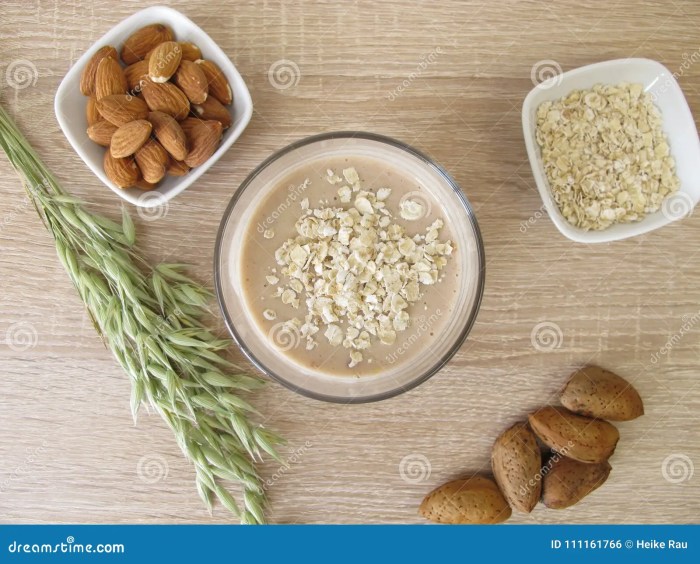Almond flour protein emerges as a nutritional champion, offering a rich tapestry of health benefits that will captivate your mind and tantalize your taste buds. As we delve into the depths of this plant-based protein, we uncover its remarkable nutritional profile, explore its diverse applications, and address any potential challenges associated with its consumption.
From weight management to muscle recovery, almond flour protein proves to be an invaluable ally in your quest for optimal well-being. Join us on this culinary adventure as we unlock the secrets of this extraordinary ingredient and empower you with the knowledge to incorporate it seamlessly into your daily life.
Almond Flour Protein Overview
Almond flour protein, derived from finely ground almonds, has gained prominence as a nutritious and versatile plant-based protein source. It boasts an impressive nutritional profile, offering a rich array of essential nutrients.
Compared to other plant-based proteins, almond flour protein stands out for its high protein content, ranging from 25% to 35%. It is also a good source of dietary fiber, providing approximately 12 grams per 100 grams. Moreover, almond flour protein contains significant amounts of healthy fats, including monounsaturated and polyunsaturated fatty acids, which contribute to heart health.
Bioavailability
Bioavailability refers to the proportion of a nutrient that is absorbed and utilized by the body. Almond flour protein exhibits good bioavailability, meaning that it is readily digested and absorbed by the body. This is attributed to the absence of anti-nutrients, such as phytic acid, which can hinder the absorption of certain nutrients.
Benefits of Almond Flour Protein

Almond flour protein, derived from finely ground almonds, offers an array of potential health benefits due to its unique nutritional composition. It is a rich source of essential nutrients, including fiber, protein, healthy fats, and antioxidants.
Supporting Weight Management, Almond flour protein
The high fiber content of almond flour protein promotes satiety and fullness, helping to reduce overall calorie intake and support weight management efforts. Fiber slows down digestion, keeping you feeling fuller for longer periods, reducing cravings and overeating.
Muscle Growth and Repair
Almond flour protein is a complete protein, meaning it contains all the essential amino acids required for muscle growth and repair. These amino acids are the building blocks of muscle tissue, and consuming adequate amounts is crucial for maintaining and building lean muscle mass.
Applications of Almond Flour Protein

Almond flour protein offers versatility in culinary applications due to its nutritional profile and functional properties. Its high protein content and gluten-free nature make it a suitable ingredient for various food products.
In baking, almond flour protein can enhance the nutritional value of baked goods. It can be incorporated into cookies, muffins, and bread to increase protein content and provide a nutty flavor. Additionally, its ability to absorb moisture makes it an effective thickener in sauces and gravies.
Almond flour protein, a nutrient-rich alternative to wheat flour, is an excellent choice for those seeking a keto-friendly meal. One such meal is keto tuna rolls , a delicious and satisfying dish. Made with almond flour protein, these rolls provide a boost of protein and healthy fats, while keeping your carb intake low.
The versatility of almond flour protein extends beyond keto tuna rolls, making it a staple in any keto-conscious kitchen.
Incorporation in Food Products
- Baking:Cookies, muffins, bread, cakes
- Cooking:Sauces, gravies, soups, stews
- Smoothies:As a protein booster
- Beverages:Protein shakes, smoothies
- Other:Protein bars, energy bites
In the food industry, almond flour protein has potential applications as a functional ingredient. Its emulsifying and stabilizing properties make it suitable for use in dairy products, such as yogurt and cheese. It can also be used as a meat extender in processed meat products.
Challenges and Considerations

Almond flour protein is generally safe and nutritious, but there are certain challenges and considerations to keep in mind when using it.
One potential challenge is that almond flour protein can be more expensive than other plant-based protein sources, such as soy or pea protein. Additionally, it may not be as widely available in all grocery stores.
Allergies and Sensitivities
People with allergies or sensitivities to almonds should avoid consuming almond flour protein. Symptoms of an almond allergy can range from mild, such as itching or hives, to severe, such as anaphylaxis. If you are unsure whether you have an almond allergy, it is important to consult with a healthcare professional before consuming almond flour protein.
Digestive Issues
Some people may experience digestive issues, such as gas or bloating, after consuming almond flour protein. This is because almonds are high in fiber, which can be difficult for some people to digest. If you experience digestive issues after eating almond flour protein, you may want to try consuming it in smaller amounts or with other foods that are high in fiber.
Taste and Texture
Almond flour protein has a slightly nutty flavor and a grainy texture. Some people may find that they do not enjoy the taste or texture of almond flour protein. If this is the case, you can try mixing it with other ingredients, such as fruits or vegetables, to improve the flavor and texture.
Overcoming Challenges
There are several ways to overcome the challenges associated with using almond flour protein. For example, you can purchase almond flour protein in bulk to save money. You can also look for almond flour protein that is fortified with other nutrients, such as vitamins or minerals, to make it more nutritious.
If you are concerned about the taste or texture of almond flour protein, you can try mixing it with other ingredients or using it in recipes that are specifically designed for almond flour protein.
Concluding Remarks

In the realm of plant-based proteins, almond flour protein stands tall, a beacon of nutrition and versatility. Its exceptional nutritional value, coupled with its wide-ranging applications, makes it an indispensable ingredient for health-conscious individuals. Whether you seek to enhance your weight management journey, fuel your fitness goals, or simply elevate your culinary creations, almond flour protein is the key to unlocking a world of possibilities.
Embrace its power and experience the transformative benefits it has to offer.








